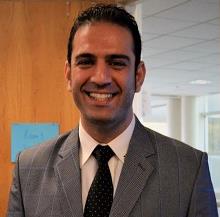Cognition in Second Language Writing
A special issue of Languages (ISSN 2226-471X).
Deadline for manuscript submissions: 15 October 2024 | Viewed by 730
Special Issue Editors
Interests: language curriculum development; teacher education; instructed language learning; psycholinguistics; cognitive processes in language learning; research methodology; (written) corrective feedback; CALL
Special Issues, Collections and Topics in MDPI journals
Interests: instructed language learning; cognitive processes in academic writing; individual differences in L2 processing; psycholinguistics; MALL, production-oriented approach; English medium instruction; meta-analysis
Interests: task design; task characteristics; task sequencing; cognition in academic writing; complexity; accuracy; lexis; fluency in academic writing; individual differences; written corrective feedback; mixed-methods research designs; analyses
Special Issue Information
Dear Colleagues,
Viewing writing as a process versus a product has been initiated many decades ago (e.g., Krapels, 1990; Zamel, 1983), as this skill is recognized as arguably one of the major components of any language curriculum. Indeed, early models of L1 and L2 writing (e.g., Flower & Hayes, 1981; Grabe & Kaplan, 1996; Kellogg, 1996) underscored the dynamic nature of composing that involves an interaction between a number of macro-processes, for example, planning, formulation, and revision. More recently, there has been quite an uptick in researchers (e.g., Abdi Tabari, 2022; Caras, 2019; Leow et al., 2022; Lin & Wang, 2022; López-Serrano et al., 2020; Manchón et al., 2020; Révész et al., 2021) approaching writing from a process-oriented perspective that focuses on the cognitive processes involved in language production. This process-oriented perspective to writing in a second language is also accompanied by additional interests, for example: (1) The potential for learning during the writing process, well-known as writing-to-learn (Manchón & Roca de Larios, 2007; Manchón, 2011), found in lower-level language courses as opposed to learning-to-write, typically found in upper-level writing courses; (2) A better understanding of the relationships between the cognitive processes and strategies L2 writers employ during both the original composing and revision (based on written corrective feedback) stages and their subsequent performances (e.g., Leow et al., 2022; Roca de Larios, Nicolás-Conesa, & Coyle, 2016); and (3) The call to also view such cognition-based research from an ISLA applied perspective (Leow, 2019; Manchón & Leow, 2020). This curricular perspective requires such scholarly inquiries to hold pedagogical implications that provide teachers with theoretically driven and empirically supported information to promote more robust learning in the writing component of their curricula.
Given the relatively recent focus on the role of cognitive processes in second language writing and the potential for both learning and pedagogical issues to be addressed, the scope of this research topic is quite extensive given that different educational levels (e.g., primary, elementary, secondary, tertiary, etc.), contexts (e.g., study abroad, immersion, at home, foreign or second language, etc.), proficiency levels (e.g., first, second, third year, etc.), genre (e.g., descriptive, argumentative, expository, academic writing for publication purposes, etc.), writing conditions (individual and collaborative), and platform (face-to-face, digital, etc.) are all welcomed. Major features of the research design may include the embedding of the research design as part of the regular syllabus, the data taken from different stages across the academic session (e.g., semester or quarter), and so on.
We request that prior to submitting a manuscript, interested authors initially submit a proposal title and an abstract of 400–600 words summarizing their intended contribution. Please send it to the Guest Editor ([email protected]) or to Languages Editorial Office ([email protected]). Abstracts will be reviewed by the Guest Editors for the purposes of a ensuring proper fit within the scope of the Special Issue. Full manuscripts will undergo double-blind peer review.
Tentative Completion Schedule
Abstract Submission Deadline: 15 April 2024
Notification of Abstract Acceptance: 15 May 2024
Full Manuscript Deadline: 15 October 2024
References
Abdi Tabari, M. (2022). Investigating the interactions between L2 writing processes and products under different task planning time conditions. Journal of Second Language Writing, 55, 100871.
Caras, A. (2019). Written corrective feedback in compositions and the role of depth of processing. In R. P. Leow (Ed.), The Routledge handbook of second language research in classroom learning (pp. 188-200). Routledge.
Flower, L., & Hayes, J. R. (1981). A cognitive process theory of writing. College Composition and Communication, 32, 365–387.
Grabe, W., & Kaplan, R. (1996). Theory and practice of writing. New York: Longman.
Kellogg, R. T. (1996). A model of working memory in writing. In C. M. Levy & S. E. Ransdell (Eds.), The science of writing (pp. 57–71). Lawrence Erlbaum.
Kim, H. R., & Bowles, M. (2019). How deeply do second language learners process written corrective feedback? Insights gained from think alouds. TESOL Quarterly, 4, 913-938.
Krapels, A. R. (1990). An overview of second language writing process research. In B. Kroll (Ed.), Second language writing (pp. 37-56). Cambridge University Press.
Leow, R. P. (2019). From SLA > ISLA > ILL: A curricular perspective. In R. P. Leow (Ed.), The Routledge handbook of second language research in classroom learning (pp. 483-491). New York, NY: Routledge.
Leow, R. P., Thinglum, A., & Leow, S. (2022). WCF processing in the L2 curriculum: A look at type of WCF, type of linguistic item, and L2 performance. Studies in Second Language Learning and Teaching, 12(4), 653-675.
Lin, M. F., & Wang, Y. F. (2022). Effects of pragmatic instruction on EFL teenagers’ apologetic email writing: Comprehension, production, and cognitive processes. International Review of Applied Linguistics in Language Teaching, 60(3), 759-797.
López-Serrano, S., Roca de Larios, J. & Manchón, R.M. (2019). Language reflection fostered by individual L2 writing tasks: Developing a theoretically-motivated and empirically-based coding system. Studies in Second Language Acquisition, 41, 503–527.
Manchón, R. M. & Roca de Larios J. (2007). Writing-to-learn in instructed language learning contexts. In E. A. Soler & M. P. S. Jordá (Eds.), Intercultural language use and language learning (pp. 101–121). Berlin: Springer.
Manchón, R. M. (Ed.). (2011). Learning-to-write and writing-to-learn in an additional language. John Benjamins.
Manchón, R. M., & Leow, R. P. (2020). Investigating the language learning potential of L2 writing: Methodological considerations for future research agendas. In R. M. Manchón (Ed.), Writing and language learning. Advancing research agendas (pp. 336-355). Amsterdam: John Benjamins.
Manchón, R.M., Nicolás-Conesa, F., Cerezo, L., & Criado, R. (2020). L2 writers’ processing of written corrective feedback: Depth of processing via written languaging. In W. Suzuki & N. Storch (Eds.), Languaging in language learning and teaching. A collection of empirical studies (pp. 241-265). Amsterdam: John Benjamins.
Révész, A., Lu, X., & Pellicer-Sánchez, A. (2021). Directions for future methodologies to capture the processing dimension of L2 writing and written corrective feedback. In R. M. Manchón, & C. Polio (Eds.), The Routledge handbook of second language acquisition and writing (pp. 339–355). Routledge.
Roca de Larios, J., Nicolás-Conesa, F., & Coyle, Y. (2016). Focus on writers: Processes and strategies. In R. M. Manchón & P. K. Matsuda (Eds.), Handbook in second and foreign language writing (pp. 267-286). Routledge.
Zamel, V. (1983). The composing processes of advanced ESL students: Six case studies. TESOL Quarterly, 17, 165-187.
Prof. Dr. Ronald Leow
Dr. Fei Li
Dr. Mahmoud Abdi Tabari
Guest Editors
Manuscript Submission Information
Manuscripts should be submitted online at www.mdpi.com by registering and logging in to this website. Once you are registered, click here to go to the submission form. Manuscripts can be submitted until the deadline. All submissions that pass pre-check are peer-reviewed. Accepted papers will be published continuously in the journal (as soon as accepted) and will be listed together on the special issue website. Research articles, review articles as well as short communications are invited. For planned papers, a title and short abstract (about 100 words) can be sent to the Editorial Office for announcement on this website.
Submitted manuscripts should not have been published previously, nor be under consideration for publication elsewhere (except conference proceedings papers). All manuscripts are thoroughly refereed through a double-blind peer-review process. A guide for authors and other relevant information for submission of manuscripts is available on the Instructions for Authors page. Languages is an international peer-reviewed open access monthly journal published by MDPI.
Please visit the Instructions for Authors page before submitting a manuscript. The Article Processing Charge (APC) for publication in this open access journal is 1400 CHF (Swiss Francs). Submitted papers should be well formatted and use good English. Authors may use MDPI's English editing service prior to publication or during author revisions.
Keywords
- writing
- cognition
- cognitive processes
- cognitive strategies
- writing-to-learn
- process-oriented







